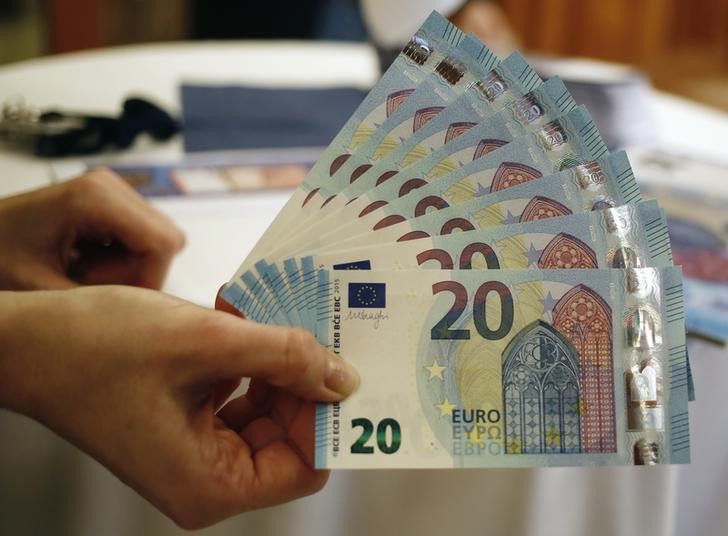By Ian Chua and Shinichi Saoshiro
SYDNEY/TOKYO (Reuters) - The euro was on the defensive on Monday after Greece missed a self-imposed Sunday deadline for reaching an agreement with its lenders to unlock aid, keeping alive fears of a debt default.
The euro eased 0.4 percent to $1.0952, retreating from Friday's high of $1.1006. Against the yen, it slipped to 135.95 from 136.49.
"There are now just four more sleeps until Friday, whereupon Greece will meet or miss its deadline for a 300 million euros payment to the IMF," said Ray Attrill, global co-head of FX strategy at National Australia Bank.
"Watch for headlines out of Europe this morning."
Without a deal, Greece risks default or bankruptcy in weeks. Sources close to the talks said Greece and its European creditors agreed on the need to reach a cash-for-reforms deal quickly.
"It's difficult to quantify how much the currency market has factored in the possibility of Greece missing the June 5 repayment deadline," said Shinichiro Kadota, chief Japan forex strategist at Barclays (LONDON:BARC) in Tokyo.
"Greek debt yields provide only a rough guide, and although a missed deadline will not spell default, market concern remains high," he said.
With the euro on the backfoot, the dollar index crept up to 97.091 from Friday's low of 96.753. It was within reach of a five-week high of 97.775 set last Wednesday.
Investors have shrugged off data showing the U.S. economy contracted in the first quarter, figures that were seen as backward looking and unlikely to derail the prospect of an interest rate hike later this year.
Against the yen, the greenback was little changed at 124.15, holding just under a 12-year peak of 124.46 scaled last week.
Analysts at RBC said the break of double-top resistance at 121.85 last week has resolved months of price consolidation to the topside.
"We are bullish USD/JPY over the next 3-6 months, with 126.40 and 130.50 serving as price targets for our view," they wrote in a note to clients.
Commodity currencies were also struggling against the dollar with the New Zealand dollar reaching a five-year low of $0.7072 first thing Monday morning.

Its Australian peer wallowed at one-month lows near 76 U.S. cents. The Aussie showed little reaction to a private survey of China's manufacturing activity contracting for the third straight month in May.